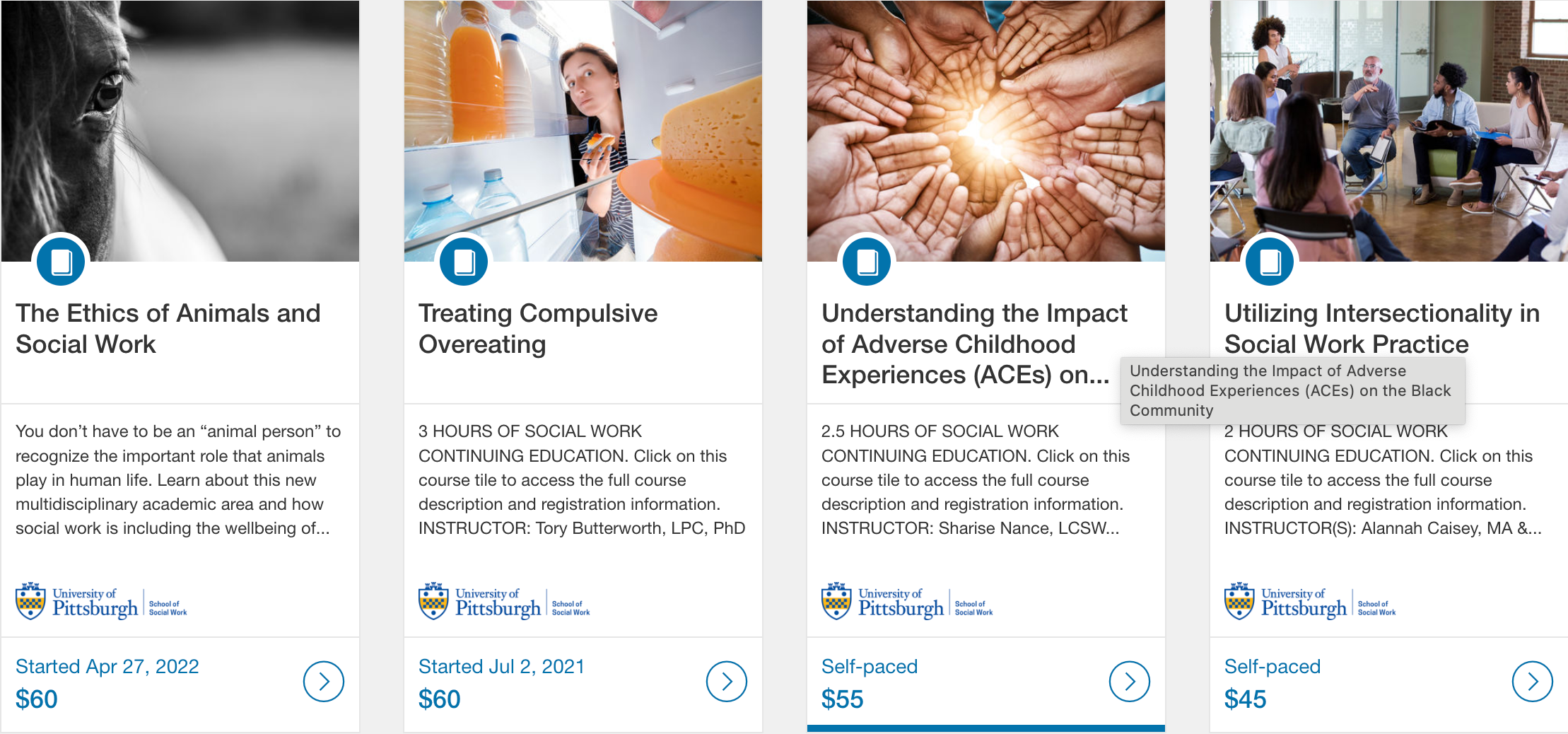
Spring 2024 Course List
CE On-Demand CoursesContinuing education can now be taken on your schedule! Topics include: Ethics, suicide prevention and intervention, anti-racist social work practice, LGBTQIA+ populations, and many more! All at the click of a mouse, at your own pace, and designed to fit your busy schedule! Check out our recorded self-paced CE programs now!

